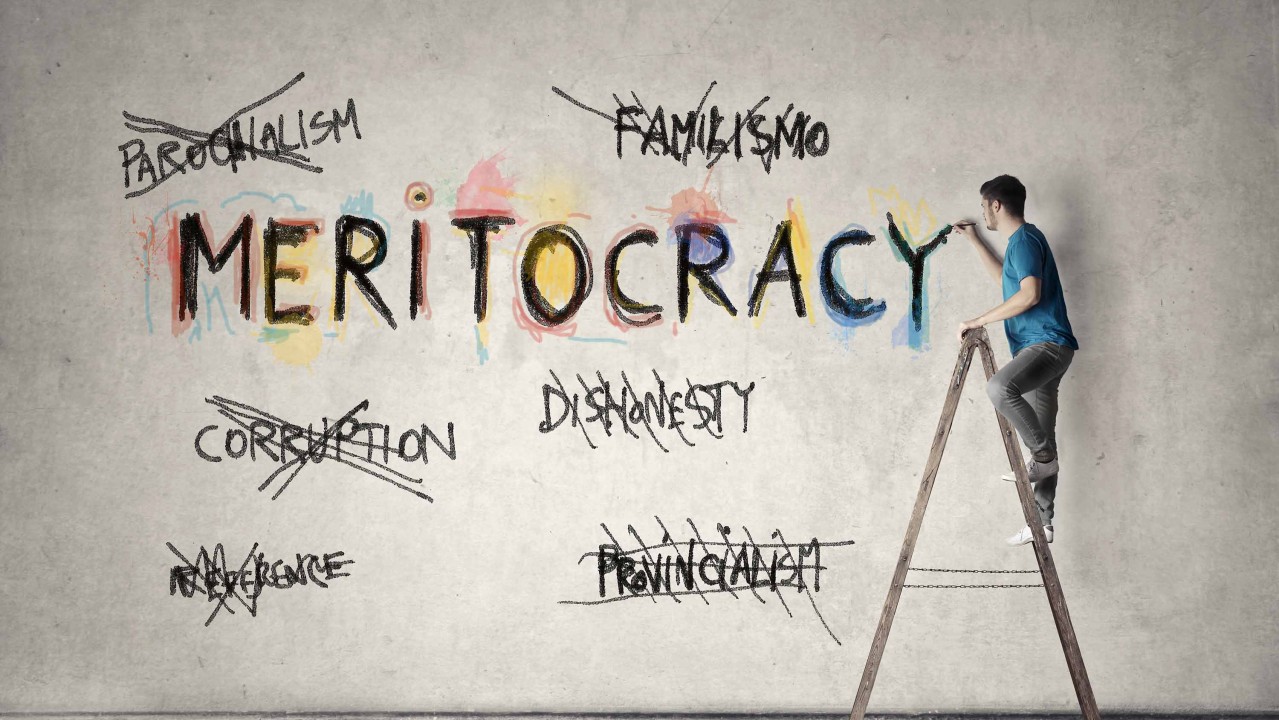Tired of Your Job: Here Is All You Need To Know
Being tired of your job generally means feeling a sense of exhaustion, burnout, or dissatisfaction with your current work situation. It can manifest in various ways, such as feeling demotivated, unfulfilled, or lacking enthusiasm for your work. Some people may just lose interest in their job reducing it to mere unintended activities. You may also experience physical symptoms like fatigue, stress, and anxiety related to your job.

Truth be told, there are quite a number of people across the globe who are currently experiencing this. This is more in underdeveloped and developing nations of the world. Many continue to do jobs they are tired of just to earn something to survive. Those that want to leave find it difficult to because of the high unemployment rate in these countries. They are not sure they will find a job that makes them happy.
Reasons Why You Are Tired of Your Job
If you need to address any situation in life, you need to first understand it and the intricacies that come with it. If you feel you are tired of your current job, do you why? Well, there are several reasons why anyone can be tired of their job. For you to address yours, you need to know why you are. Once you know this, then it’s easier for you to know the way forward and how to achieve That. Here are some reasons, hope you will find yours;
Lack of Fulfillment: People may become tired of their job if they don’t feel like they are making a difference or contributing to the company. It’s essential to feel like the work one does has a purpose and is valued. Without this sense of fulfillment, motivation can decline, and work can feel tedious and unimportant.
Monotony: If the work one does is repetitive and lacks variety, it can become dull and unchallenging. Doing the same tasks every day can make the job feel monotonous and uninspiring. People may feel like they are not growing or improving, leading to boredom and dissatisfaction.
Overwork: When people work long hours or have an unmanageable workload, it can lead to fatigue, burnout, and exhaustion. This can make people feel like they are going through the motions and not fully engaging in their work. When people don’t have enough time off, it can lead to chronic stress and negatively impact mental and physical health.
Toxic Work Culture: A negative work environment can cause frustration and demotivation. Coworkers who are unpleasant, unhelpful, or create drama can create a hostile work environment. Micromanaging bosses or lack of support can also make it challenging to feel motivated at work.
Limited Growth Opportunities: When people feel like they are not learning or growing in their role, they can become frustrated and bored. People want to feel like they are continually improving their skills, and when there is no clear path for advancement or development, motivation can decline.
Mismatched Values: People want to work for companies that align with their personal values and goals. When people don’t feel like their work is meaningful or that it aligns with their beliefs, it can lead to frustration and disillusionment. It’s essential to feel like the work one does has a purpose and is aligned with one’s values and goals.
Lack of Work-Life Balance: When people feel like they are constantly working and don’t have time for personal pursuits or relationships, it can lead to exhaustion and burnout. It’s essential to have a healthy work-life balance to maintain well-being and motivation. If people feel like their job is taking over their life, they may start to feel overwhelmed and fatigued.
Lack of Recognition: People want to feel valued and appreciated for their work. When their efforts go unnoticed or unappreciated, it can be demotivating. Recognition can come in the form of positive feedback, promotions, bonuses, or other rewards.
Poor Compensation: If people feel like they are not being paid fairly for their work or that their compensation is not in line with industry standards, it can lead to frustration and demotivation. Fair compensation is an essential factor in job satisfaction and retention.
Poor Management: When people feel like their managers are incompetent, unprofessional, or ineffective, it can be challenging to stay motivated. Poor management can create confusion, inconsistency, and frustration. A good manager should provide clear expectations, guidance, and support.
Lack of Autonomy: If people feel like they have no control over their work or are micromanaged, it can be demotivating. People want to feel like they have the freedom to make decisions and use their skills and expertise to solve problems. Autonomy can also create a sense of ownership and accountability.
Poor Communication: When communication is unclear, inconsistent, or ineffective, it can lead to misunderstandings, mistakes, and frustration. People want to feel informed and involved in decision-making. A lack of communication can create a sense of isolation and disengagement.
Health and Safety Concerns: If people feel like their workplace is unsafe or unhealthy, it can lead to anxiety and stress. Safety and health concerns can include physical hazards, exposure to toxins or pollutants, or inadequate mental health support.
Lack of Flexibility: If people feel like they have no control over their schedule or are unable to accommodate personal responsibilities, it can lead to frustration and stress. Flexibility can include options such as telecommuting, flexible schedules, or accommodating personal responsibilities.
Lack of Training or Development Opportunities: People want to learn and improve their skills. When there are no opportunities for training or development, people may feel stagnant and unchallenged. Employers should provide opportunities for growth and development to keep employees engaged and motivated.
Lack of Resources or Support: When people don’t have the tools, resources, or support they need to do their job effectively, it can be demotivating. People want to feel like they have what they need to do their job well. Employers should provide the necessary resources and support to ensure employee success.
Poor Work-Life Integration: When people feel like their work is interfering with their personal life or vice versa, it can lead to stress and burnout. People want to be able to integrate their work and personal life in a way that feels balanced and sustainable. Employers should promote work-life integration to ensure employee well-being.
Lack of Diversity and Inclusion: When people feel like they don’t belong or are not valued because of their race, gender, sexual orientation, or other identities, it can be demotivating. Employers should prioritize diversity and inclusion to create a welcoming and supportive workplace for all employees.
Ethical Concerns: When people feel like their work conflicts with their personal values or ethics, it can be demotivating. People want to feel like they are working for a company that aligns with their personal values and ethics. Employers should prioritize ethical considerations to create a workplace that is aligned with employee values.
Lack of Purpose or Mission: When people don’t understand the purpose or mission of their company, it can be challenging to stay motivated. People want to feel like they are part of something larger than themselves. Employers should prioritize communicating the purpose and mission of the company to create a sense of purpose and motivation among employees.
Levels of Job Tiredness
There is no standardized scale or classification for levels of job tiredness, as each individual’s experience is unique and can vary based on various factors such as job demands, personality, and work environment. However, here are some general levels of job tiredness that people may experience:
Mild Job Tiredness
At this level, you may experience a sense of boredom or a lack of enthusiasm about your work. You may feel like your job has become routine or repetitive, and you may start to lose interest in your work tasks. You may also start to daydream or get distracted easily, which can lead to a decrease in productivity.
However, you may still be able to perform your job duties effectively, and overall, you may still feel relatively satisfied with your job.
To address mild job tiredness, you can try to change up your routine by taking on new responsibilities or projects or finding ways to challenge yourself within your current job. You can also try to find ways to incorporate your personal interests into your work or take breaks throughout the day to recharge.
Moderate Job Tiredness
At this level, job tiredness may start to impact your mental health and job performance. You may experience symptoms such as stress, anxiety, and fatigue, which can lead to decreased productivity, concentration, and motivation. You may start to feel frustrated or dissatisfied with your work and may begin to consider looking for a new job.
To address moderate job tiredness, it’s important to take steps to reduce stress and increase job satisfaction. This can include talking to your supervisor about your concerns, seeking support from colleagues or a mental health professional, practicing self-care and mindfulness techniques, and considering ways to improve work-life balance. You may also want to explore new career opportunities or consider taking on additional training or education to enhance your skills and knowledge.
Severe Job Tiredness
At this level, job tiredness has escalated to a state of extreme exhaustion, burnout, and even depression. You may feel completely disengaged from your work and may experience physical symptoms such as headaches, insomnia, and gastrointestinal issues. Your job performance and mental health may be significantly impacted, and you may feel like you cannot continue in your current job.
To address severe job tiredness, it’s important to take action immediately to prevent further harm to your mental and physical health. This may include taking time off work to focus on self-care and recovery, seeking support from a mental health professional, and considering a change in job or career. You may also want to prioritize your well-being and make necessary changes to your lifestyle, such as incorporating regular exercise and healthy eating habits and practicing stress-management techniques.
Signs That You May Be Tired of Your Job
Lack of Motivation: When you’re tired of your job, you may find that you lack the motivation to get things done. You may feel like your work doesn’t matter or that you’re not making a difference. This can lead to procrastination, missed deadlines, and a general feeling of disengagement.
Chronic Exhaustion: Feeling tired all the time, even after getting enough sleep, can be a sign of chronic stress and burnout. This can be caused by a combination of factors, such as working long hours, having a heavy workload, and feeling unfulfilled in your job.
Lack of Enthusiasm: When you’re tired of your job, you may find that you don’t feel excited or enthusiastic about your work. You may feel like you’re just going through the motions, and that your work is not challenging or interesting.
Decreased Productivity: When you’re not motivated or enthusiastic about your work, your productivity may suffer. You may find that it takes you longer to complete tasks or that you’re not as efficient as you used to be. This can lead to missed deadlines and lower-quality work.
Negative Attitude: When you’re tired of your job, you may find that you have a negative attitude toward your job or coworkers. You may feel more easily annoyed or frustrated by small things, and may not be as patient or understanding as you used to be.
Increased Absenteeism: When you’re not enjoying your job, you may find yourself calling in sick more often or taking more vacation days than usual. This can be a sign that you’re avoiding work because you’re not motivated or engaged.
Lack of Engagement: When you’re not engaged in your job, you may find that you’re not as interested in meetings or conversations about work. You may not be participating as actively as you used to, or you may not be as interested in what others have to say.
Physical Symptoms: Chronic stress and burnout can manifest in physical symptoms such as headaches, stomachaches, or muscle tension. These symptoms can be a sign that you’re not taking care of yourself and that your job is taking a toll on your overall well-being
Lack of Career Growth: Feeling like you’re not able to grow or advance in your job can be frustrating and demotivating. It can make you feel like you’re stuck in your current position, and that there’s no room for development or improvement. If you’re not learning new skills or taking on new challenges, you may start to feel bored and disengaged.
Feeling Undervalued: Feeling like your contributions are not recognized or appreciated can be demoralizing and lead to a negative attitude toward your job. If you feel like your hard work is going unnoticed or that you’re not being compensated fairly, you may start to feel resentful and disengaged.
Office Politics: Dealing with office politics and conflicts between coworkers or managers can be exhausting and lead to burnout. If you feel like you’re constantly navigating difficult interpersonal relationships, it can take a toll on your mental and emotional well-being.
Mismatched Job Expectations: If the job responsibilities or tasks are not aligned with what you expected when you started the job, it can be disappointing and lead to a lack of engagement and motivation. If you feel like you’re not using your skills or working on projects that are meaningful to you, you may start to feel unfulfilled and disengaged.
Monotonous Work: Doing the same tasks over and over again without any variation can be tedious and lead to a lack of enthusiasm and creativity. If you feel like you’re not being challenged or that your work is not interesting, you may start to feel bored and disengaged.
Work-Life Imbalance: If your job requires long hours or takes up too much of your personal time, it can lead to stress, exhaustion, and burnout. If you’re not able to maintain a healthy work-life balance, it can impact your overall well-being and make it harder to stay motivated and engaged at work.
Feeling Stuck: Feeling like you’re stuck in your current job or company can be demotivating and lead to a lack of enthusiasm for your work. If you don’t see any opportunities for growth or change, you may start to feel like you’re not making progress in your career and that your work is not meaningful.
If you’re experiencing any of these signs, it’s important to take them seriously and consider whether changes can be made to improve your job satisfaction and overall well-being. Talking to your supervisor or HR representative may be a good first step in addressing your concerns. It’s important to prioritize your mental and emotional health and to take steps to improve your work situation if necessary
Do you like the article? Please comment, and share with loved ones. You can as well buy me a drink through this link. You can read more about work here.



